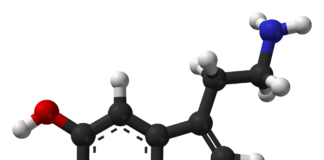Tag: Depression
Quitting Smoking May Help with Depression
A new study suggests that smoking cessation is related to depressive symptom improvement, but that depression may also make it harder to quit.
New Data Supports Acupuncture as a Treatment for Depression
Researchers found acupuncture effective in the treatment of chronic pain and depression
Neuroscience-based Treatment Program Proposed for Adolescent Depression
A study published in Frontiers in Human Neuroscience proposes a new model for the treatment of adolescents diagnosed with major depressive disorder (MDD).
Antidepressant use During Pregnancy may Increase Risk of Birth Defects
Use of antidepressants increased the risk of organ-specific malformations in women with depression
Lay Health Worker Intervention Effective at Decreasing Symptoms
Compared with standard care, results of a lay health worker intervention in Zimbabwe suggest that this is effective for reduction of common mental health symptoms
Treating Metabolic Conditions May Resolve Some Depressive Symptoms
New research suggests that treatable metabolic abnormalities underlie some treatment-resistant cases of depression—and treating the metabolic condition has the possibility of dramatically reducing depressive symptoms
Study Finds Phone Apps Effective for Reducing Mental Health Symptoms
Researchers found that participants using coach-assisted apps designed for depression and anxiety experienced symptom reductions in both conditions
Importance of Physical Symptoms in Mental Health Evals
Researchers at Harvard Medical School highlight the need for mental health clinicians to explore the meaning of physical symptoms and pain
Better Mental Health Care Needed for Pilots
A new study shows that airline pilots are at elevated risk for depression, yet encounter barriers to accessing mental health services.
“The Miseducation of Frank Waln”
Studies of modern Native Americans have shown that “historical trauma,” the name that social workers give to the perception of historical loss passed down through...
Certain Antihypertensive Drugs Linked to Mood Disorders
A new study suggests that some antihypertensive drugs are associated with increased risk of bipolar disorder and depression, while other antihypertensive drugs are actually associated with decreased risk.
FDA Safety Warning For Citalopram Did Not Improve Outcomes for Vets
Instead of reducing risk, the dose reduction recommendation made by the FDA in their safety message was associated with an increase in hospitalizations.
Using Breathing-Based Meditation to Treat Depression
Study reveals data suggesting yogic breathing may be helpful in treating depression for patients who have not respond to antidepressants
Study Finds the Spice Curcumin Fights Depression
The study finds that curcumin may be as efficacious as antidepressant medications, particularly for atypical depression
Treating Depression with Exercise and an Internet-Based Intervention
A new study compares exercise, Internet-based cognitive-behavioral therapy (ICBT) and usual care for treating individuals with depression.
Massage Therapy May Be Useful in Treating Symptoms of Anxiety
The study finds that twice-weekly massage therapy may be a useful alternative treatment for anxiety in terms of reducing both, psychological and somatic symptoms.
Antidepressant Use Linked to Dementia
A new study finds that elderly individuals using antidepressants are at significantly higher risk for dementia compared to depressed individuals who did not take the drugs.
The Mountain Man
Self-acceptance is a very human experience, and a necessary one in the pursuit of personal happiness. In my experience, the mental health field does an abysmal job of addressing this truth.
Hypnotic Medications Linked to Suicide Risk
A recent review found that hypnotic medications are associated with risks of suicide and suicidal ideation.
What Can We Learn About Antidepressants from Alcohol?
Particularly since ketamine has been referred to as the “miracle cure” for depression, and as researchers continue to search for the next biochemical panacea, it is important to remember that even if a substance has antidepressant effects, it still may not be an appropriate treatment for depression.
Use of Antidepressants Linked to Diabetes
Selective serotonin reuptake inhibitors (such as Prozac and Zoloft) are the most commonly prescribed medication for depression. SSRIs have long been associated with an...
Hormonal Contraception May Increase Risk for Depression and Antidepressant Treatment
The results of the nationwide study, analyzing data from over one million women, suggest that hormonal contraceptive use may increase the risk of depression and use of antidepressants, especially for adolescents.
Why Social Isolation Leads to Inflammation
We are wired for community. If we disconnect, our bodies will call us back to the sense of human connection that we are wired for, using the unexpected language of inflammation.
New Study Casts Doubt on Efficacy of Ketamine for Depression
A new study, published this month in the Journal of Affective Disorders, investigated the effectiveness of weekly intravenous ketamine injections as a treatment for...
How Do Antidepressants Really ‘Work’?
A recent review, published in Neuroscience & Biobehavioral Reviews, challenges the dominant assumptions about the neurochemical and therapeutic effects of Selective Serotonin Reuptake Inhibitors...

































